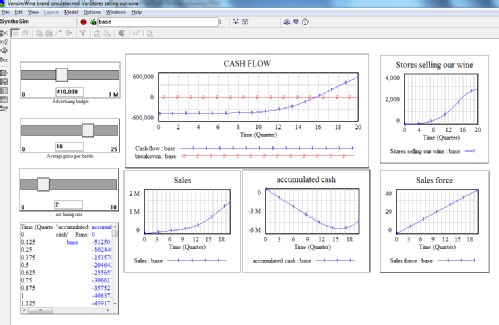The Simulation Research Group
The Simulation Research Group focuses on organisational and strategic modelling using simulation methods. This covers a range of simulation approaches: discrete-event simulation, system dynamics and agent-based simulation. The common theme is developing and using models that represent the dynamics of a system over time. A key focus of our research is on the practical application of simulation methods, whether that be through modelling specific problems or investigating how to improve the practice of simulation.
Members of the Group
Dr Katy Hoad
My academic qualifications span the subject areas of Mathematics, Statistics and OR. My PhD was in the field of disease modelling using both compartmental (system dynamic type) models and Markov Chain spatial/time models. I worked for 3 years on the Automated Simulation Output Analysis (AutoSimOA) project, which was a three year project sponsored by the EPSRC (Grant ref: EP/D033640/1) and SIMUL8. It investigated the development of a methodology for automatically advising a simulation user on the warm-up period, run-length and number of replications required for a simulation model. I am currently extending my research in this area of output analysis, as well as continuing to research in the area of health modelling/statistical analysis.
Dr Martin Kunc (Associate Professor in Operational Research)
The main focus of my research is strategic modelling using system dynamics. I have obtained a PhD in Decision Science, focussing on System Dynamics to understand and foresee the dynamics of competitive industries. My current area of research is simulation methodologies, conceptual modelling, validation & verification and implementation of model outputs in supply chain modelling.
Funded Research Projects
The Automated Simulation Output Analysis (AutoSimOA) project was a three year project sponsored by the EPSRC (Grant ref: EP/D033640/1) and SIMUL8 . It investigated the development of a methodology for automatically advising a simulation user on the warm-up period, run-length and number of replications required for a simulation model.
The project “Developing a participative user tool to aid the conceptual development of simulation models in healthcare” was a two year project sponsored by the EPSRC (Grant ref: EP/E045871/1). We developed an approach stemming from the problem structuring field of Operational Research that aimed to help health care administrators and clinicians take a more active part in the development of health care conceptual models.
Some Recent Publications by Members of the Group
`AutoSimOA: A Framework for Automated Analysis of Simulation Output'. Journal of Simulation 5 (2011): 9-24.
Hoad, K., Robinson, S. and Davies, R. `Automated selection of the number of replications for a discrete-event simulation'. Journal Of The Operational Research Society 61 (2010): 1632-1644.
Hoad, K., Robinson, S. and Davies, R. `Automating warm-up length estimation'. Journal Of The Operational Research Society 61 (2010): 1389-1403.
Hoad, K. A., Vant Hoog, A. H., Rosen, D., Marston, B., Nyabiage, L., Williams, B. G., Dye, C. and Cheng, R. C. H.` Modelling local and global effects on the risk of contracting tuberculosis using stochastic Markov-chain models'. Mathematical Biosciences 218 (2009): 98-104.
Kunc, M., (2009) ‘Forecasting the development of wine tourism: a case study in Chile’, International Journal of Wine Business Research’ (Vol 21) pp.325 - 338
Kunc, M. (2008) ‘Achieving a balanced organizational structure in professional services firms: some lessons from a modelling project’, System Dynamics Review (Vol 24) pp. 119-143
Gary, M. S., Kunc, M., Morecroft, J.D.W. and Rockart, S. F. (2008) ‘System Dynamics and Strategy’, System Dynamics Review (Vol 24) pp. 407-429
